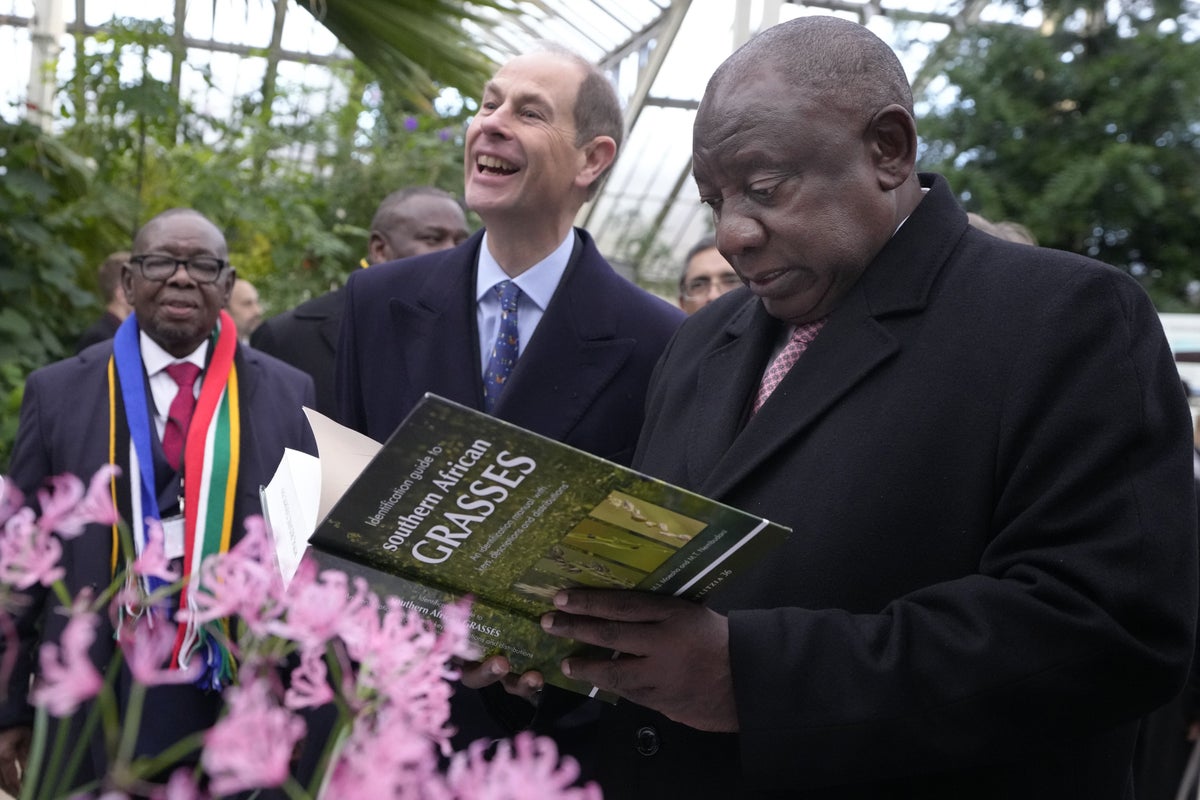
The UK and South Africa have agreed to strengthen their health partnership to help prevent future pandemics.
The agreement was signed on Wednesday as South African President Cyril Ramaphosa visited the Francis Crick Institute biomedical research facility in London during his state visit to the UK.
As part of the agreement, British and South African institutions will collaborate on nine research projects on issues including health systems, mental health, surgery and HIV, according to the Foreign, Commonwealth and Development Office (FCDO).
New UK funding has been announced to support genomic sequencing by South Africa’s National Institute for Communicable Diseases, which aims to accelerate the detection of dangerous diseases across Africa.
The partnership will also prioritise building vaccine manufacturing on the continent.
The two countries are also working together on tackling climate change, with the UK contributing funding to the Just Energy Transition Partnership with South Africa to help it decarbonise its economy.
Foreign Secretary James Cleverly said: “The UK and South Africa have shown global leadership in joining together to protect people by preventing the spread of dangerous diseases, and by working to halt climate change – including through the ground-breaking Just Energy Transition Partnership, to help countries move away from using fossil fuels.”
Health Secretary Steve Barclay said: “Strengthening the partnership between the UK and South Africa is not only crucial in improving health and patient outcomes in both countries but it is also vital to add to the global resilience of our health systems.
“Through this partnership we will reinforce our shared commitment to ensuring the world is better prepared for future pandemics through joint research and building capability for disease surveillance, including antimicrobial resistance.”
Mr Ramaphosa also visited Kew’s Royal Botanical Gardens, which has a longstanding seed banking collaboration with South African institutions to help preserve the nation’s rich plant diversity.
Environment Secretary Therese Coffey, who accompanied the South African president to the gardens with the Earl of Wessex, said: “This visit highlights the fantastic biodiversity of South Africa and our longstanding scientific collaboration to protect nature.”
Ministers discussed the importance of UN talks on halting biodiversity loss, taking place next month in Montreal, Canada.
At Kew, the president and the earl saw plants on display in the Temperate House, home to more than 10,000 rare and endangered plants from around the world, including South Africa.
He was shown Kew’s king protea – his country’s national flower, as well as an encephalartos woodii, dubbed the loneliest plant in the world being the only specimen to be found in the wild – in 1895 in South Africa.
Mr Ramaphosa was also presented with seeds from Leucospermum conocarpodendron – the South African flower known as the tree pincushion – which has been decreasing in number on the Western Cape.
The gift marks a plan to open a South African National Seed Bank for Wild Species next year, beginning a transfer of duplicate seeds held at The Millennium Seed Bank.
At one point, the president was pictured holding and intently examining an Identification Guide to South African Grasses book.







